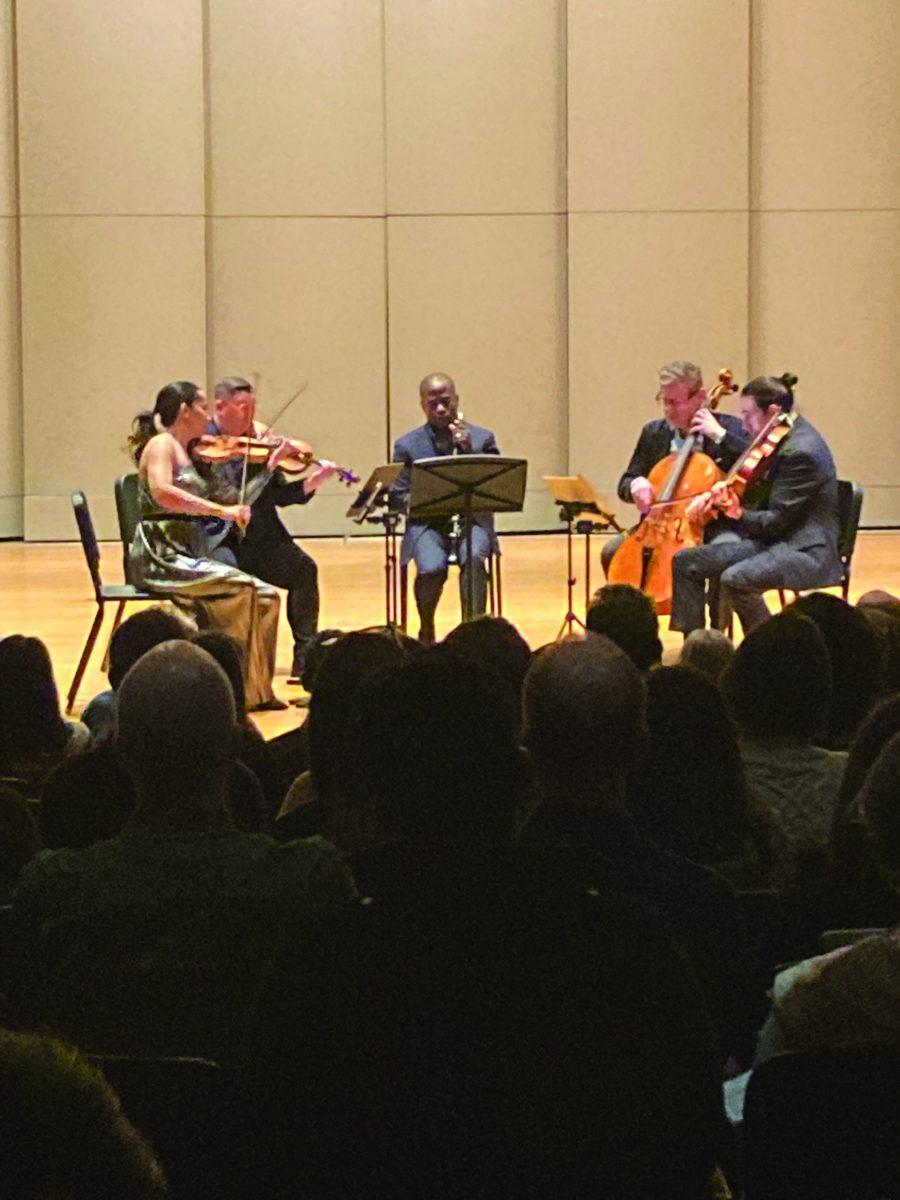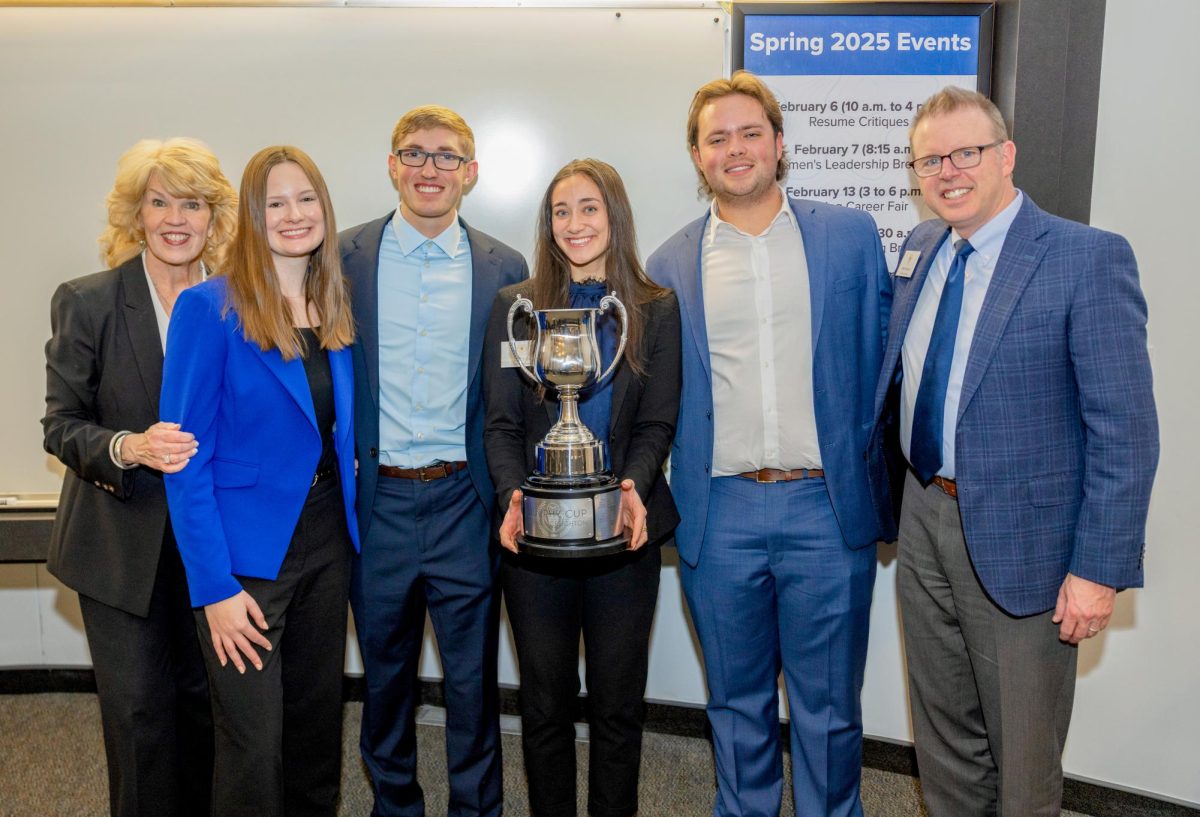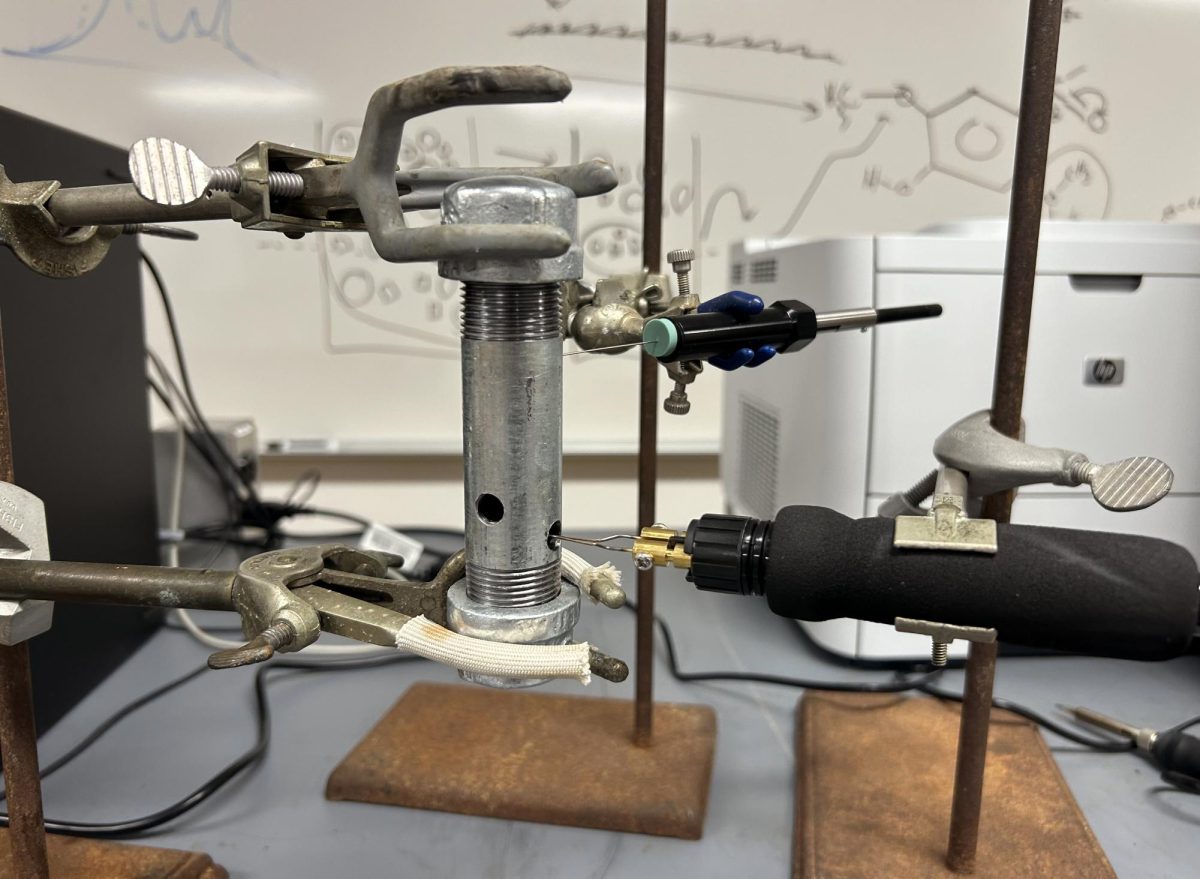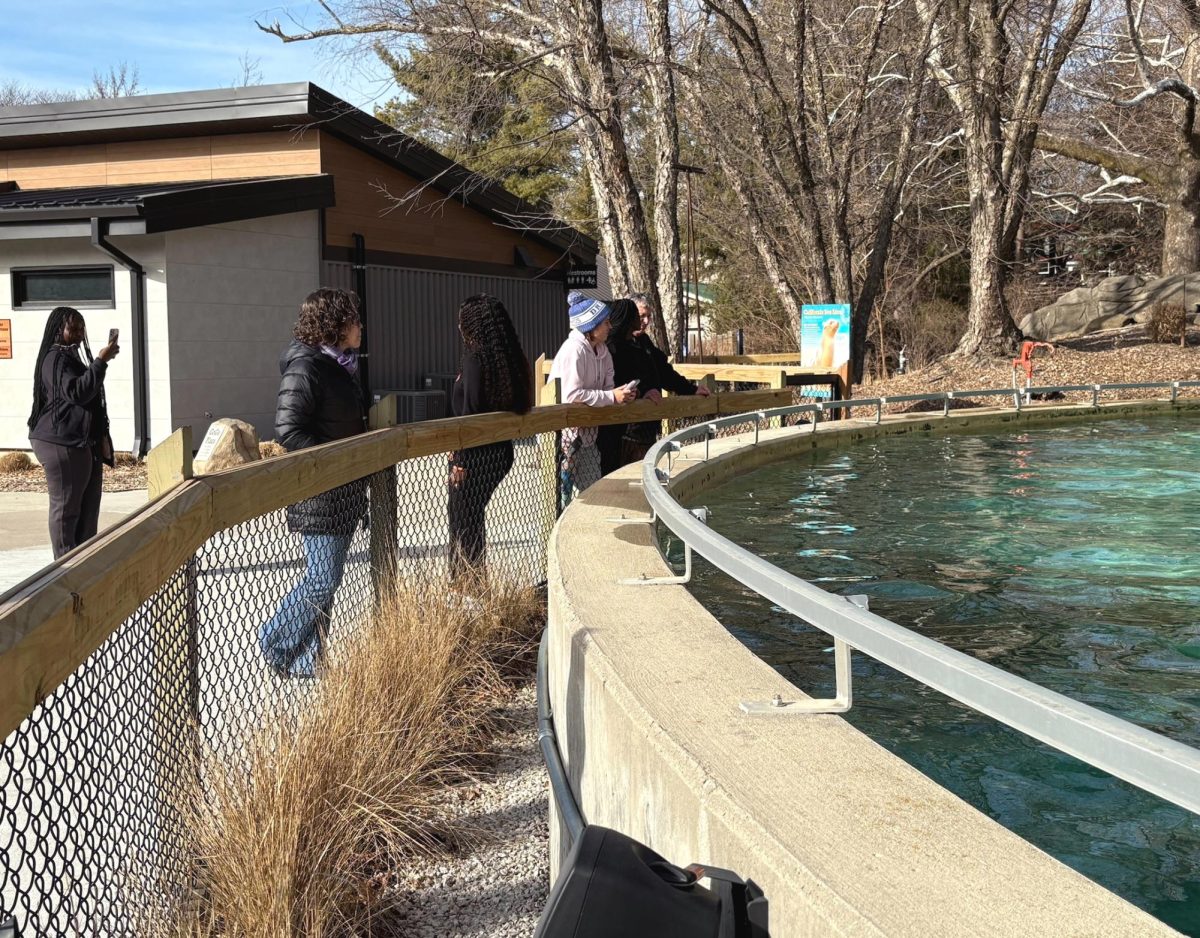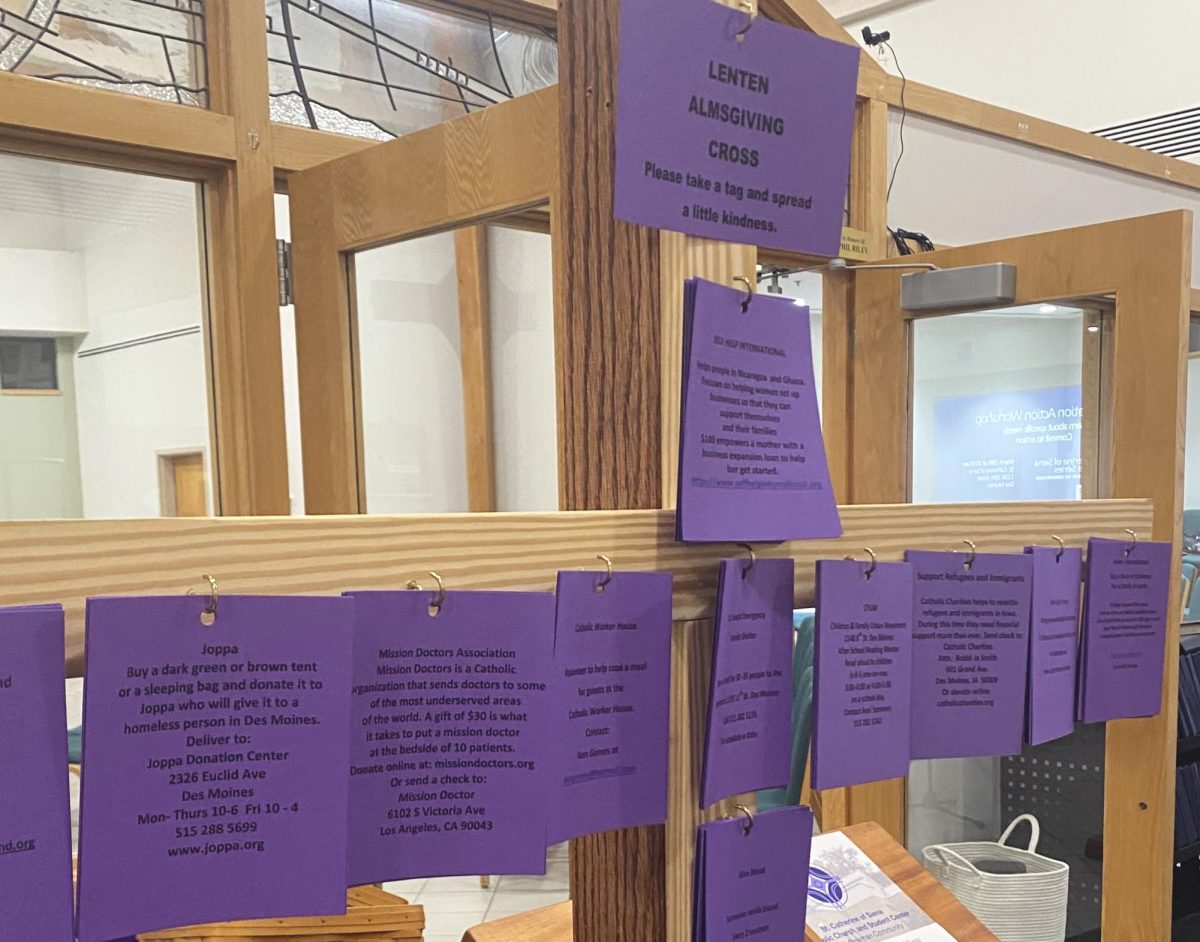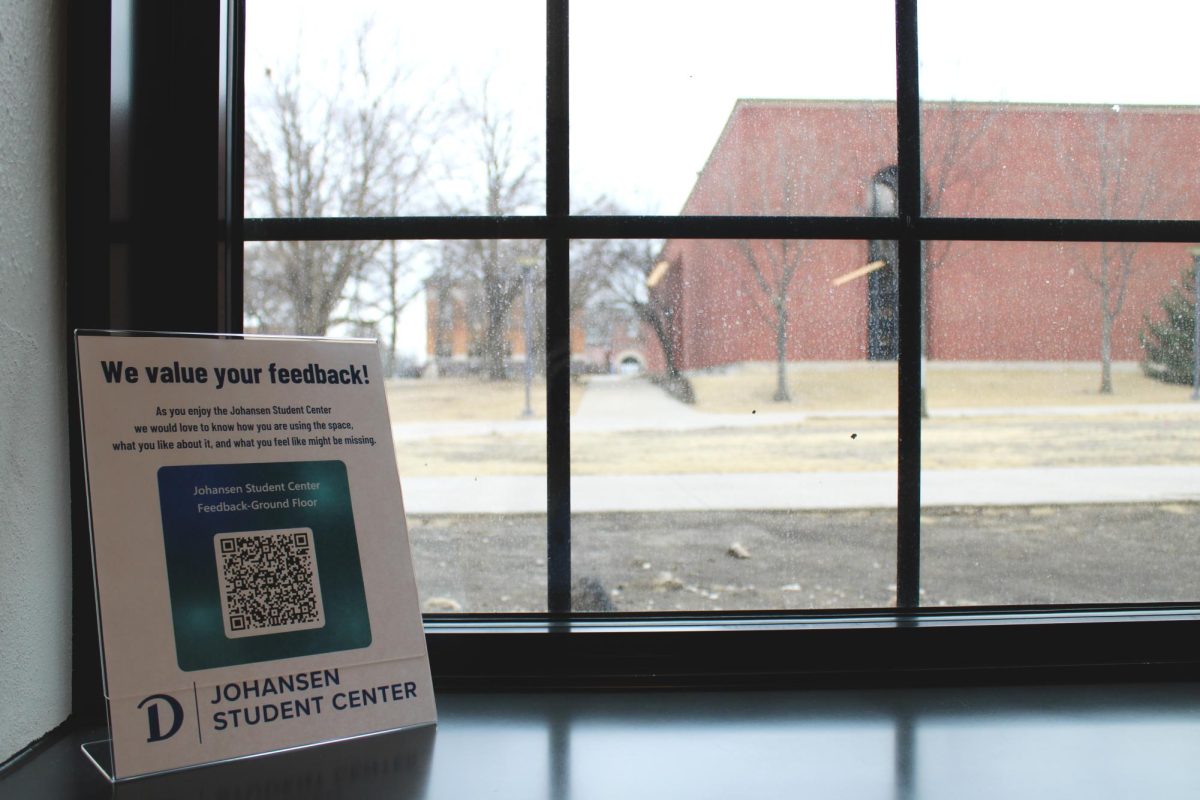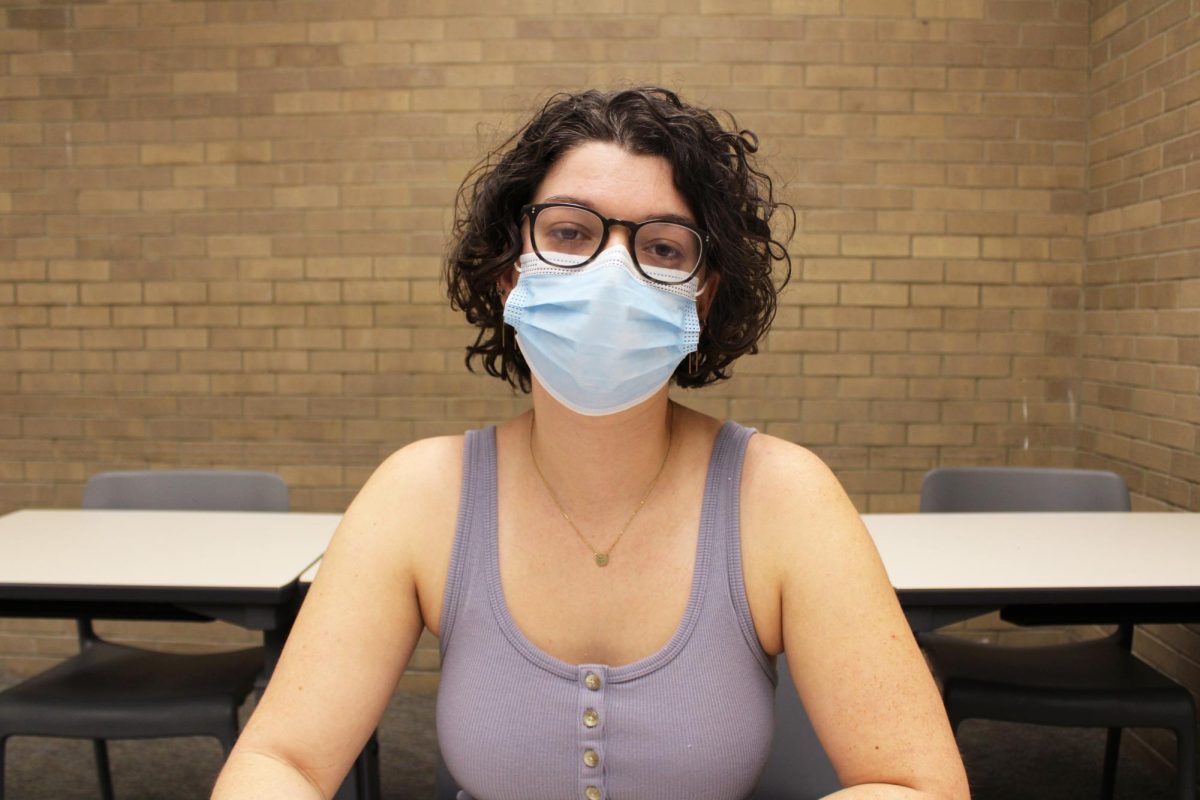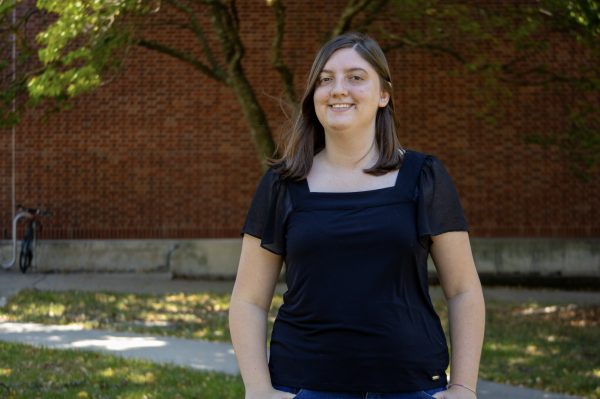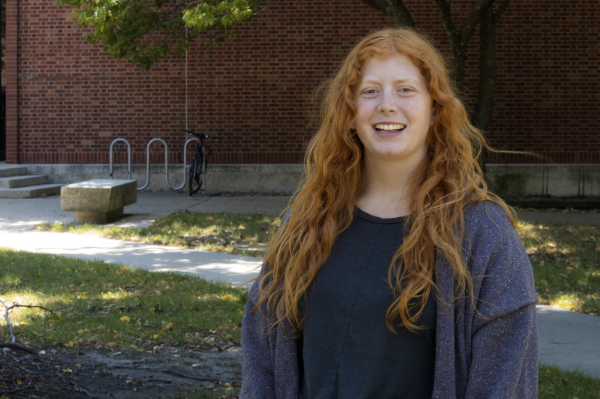The Catalyst Quartet and clarinetist Anthony McGill performed three pieces on the evening of Wednesday, March 29 in Sheslow Auditorium. Individuals from the greater Des Moines community, Drake faculty and Drake students attended the concert.
The Catalyst Quartet was formed in 2010 and consists of violinist Karla Donehew Perhez, violinist Abi Fayett, violinist Paul Laraia and cellist Karlos Rodriquez. They are a Grammy Award-winning group who have performed around the globe.
“We are really excited that we are able to offer this internationally-renowned type of performance on our campus for free for the community. That’s good community building between Drake and Des Moines,” said Ashley Sidon, professor of cello at Drake.
McGill is the principal clarinet for the New York Philharmonic. In 2020, he received the Avery Fisher Prize for outstanding achievement in classical music.
“This concert was so appealing. The fact that this worldwide clarinet player is here at Drake, what an opportunity,” said Wyatt Hannan, a music major and vocal performer at Drake University.
The Ferguson Grant provides funds for an annual concert. The fund rotates between each instrumental area, and this year, went to the strings. The grant helped pay for the quartet and McGill’s travel and to make the concert free for the community.
“They are presenting a program that includes underrepresented composers, female composers as well as black composers, and they are bringing with them not just a string quartet but the most famous clarinetist in the whole country,” Sidon said.
The concert began with The Catalyst Quartet playing “String Quartet in B Minor” by Teresa Carreno, which was followed by “String Quartet in E Flat Minor” by Fanny Mendelssohn. After intermission, they were joined by clarinetist McGill and played “Quintet in F Sharp Minor” by Samuel Coleridge-Taylor.
The musicians opened each piece with background on the composers, and guests received program notes with the composers’ full biographies.
When the musicians finished playing, the audience gave a standing ovation.
“The way the notes came out, the phrasing of everything, it just felt like it was second nature to him,” said Orlando Fuentes, a clarinet performance major at Drake University.
Sidon highlighted the importance of sharing a variety of music and underrepresented composers with students.
“They’ll be exposed to a more colorful variety of music, music that isn’t often programmed but should be, and just experience hearing famous artists, bring some ideas to students, which hopefully inspires them to practice more and work at their instruments and bring what they heard into their own playing,” Sidon said.
According to Joni Kinnan, an administrative support specialist at Drake University, the next guests will likely be jazz, winds, or percussion artists.
Yuen hopes these concerts will bring in students whether they major in music or not.
“Anybody that comes to a classical music concert who’s not a classical music major, that’s a win for the field,” Yuen said. “If they come and enjoy it or even have it spark some interest in something that they think of as boring or old-fashioned; if we can change their minds about that, I would be thrilled.”

